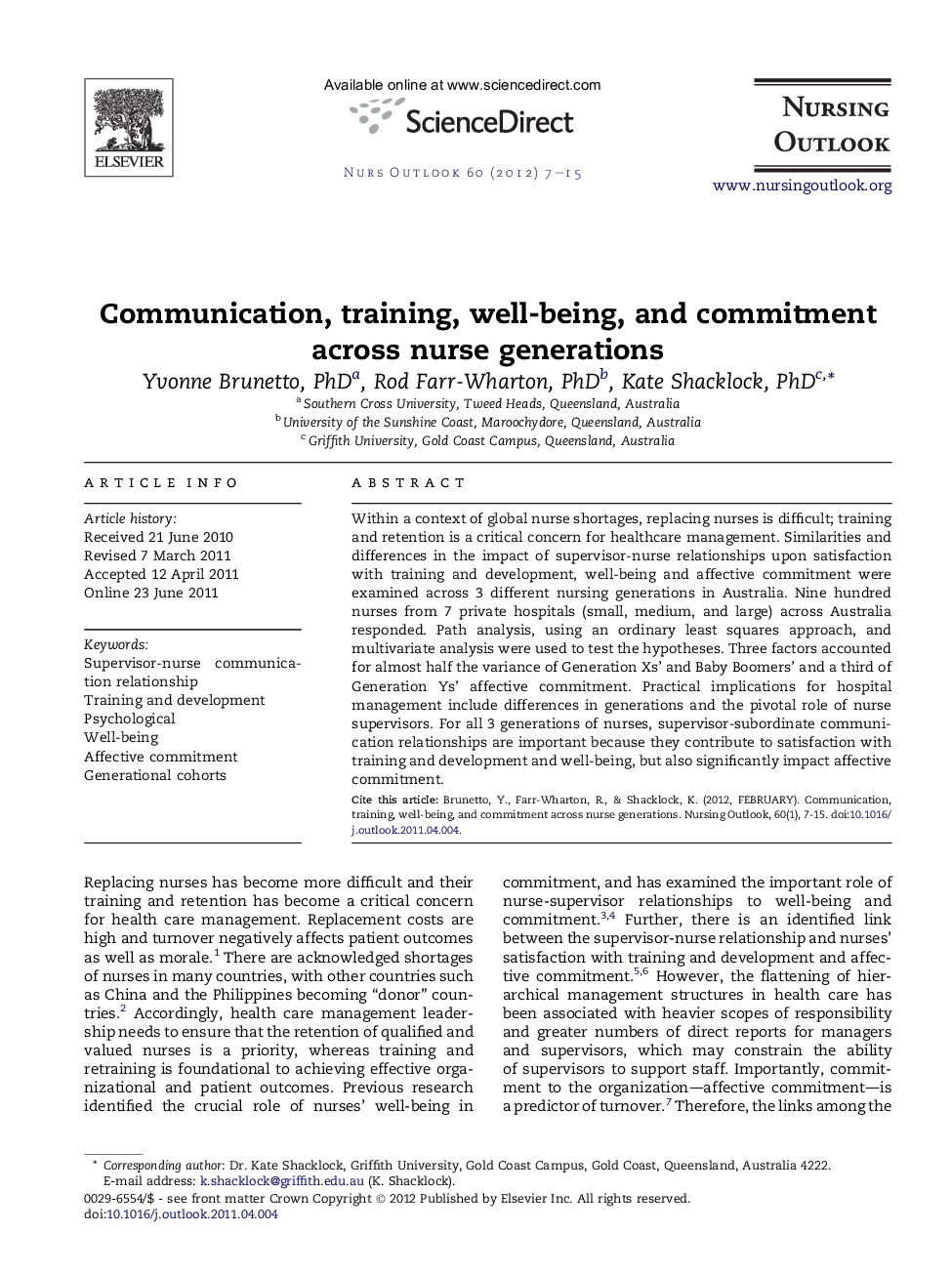| Article ID | Journal | Published Year | Pages | File Type |
|---|---|---|---|---|
| 2673425 | Nursing Outlook | 2012 | 9 Pages |
Within a context of global nurse shortages, replacing nurses is difficult; training and retention is a critical concern for healthcare management. Similarities and differences in the impact of supervisor-nurse relationships upon satisfaction with training and development, well-being and affective commitment were examined across 3 different nursing generations in Australia. Nine hundred nurses from 7 private hospitals (small, medium, and large) across Australia responded. Path analysis, using an ordinary least squares approach, and multivariate analysis were used to test the hypotheses. Three factors accounted for almost half the variance of Generation Xs’ and Baby Boomers’ and a third of Generation Ys’ affective commitment. Practical implications for hospital management include differences in generations and the pivotal role of nurse supervisors. For all 3 generations of nurses, supervisor-subordinate communication relationships are important because they contribute to satisfaction with training and development and well-being, but also significantly impact affective commitment.
